Iran Confirms Death Sentence for Sunni Cleric
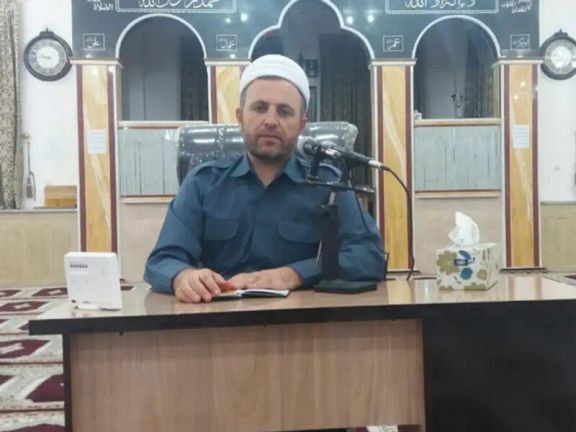
Iran’s Supreme Court confirmed the death sentence and 16 years of imprisonment for Mohammad Khezrnejad, a Sunni cleric and outspoken critic of the government.

Iran’s Supreme Court confirmed the death sentence and 16 years of imprisonment for Mohammad Khezrnejad, a Sunni cleric and outspoken critic of the government.
The 45-year-old cleric from Bukan in West Azarbaijan Province was arrested in November 2022 amid the nationwide protests for his participation in a memorial service for Asad Rahimi, a victim of the nationwide uprising, and was charged with "corruption on earth" by the Revolutionary Court.
The Kurdistan Human Rights Network reported that the sentence was upheld by Branch 41 of the Supreme Court under Judge Ali Razini. The initial trial was criticized for its lack of due process, conducted over four brief sessions without legal representation for Khezrnejad, and based on reports without considering his defense.
Despite his advocacy for religious tolerance and opposition to extremism, Khazranejad was accused of collaborating with extremist groups as the regime continues its oppression of the Sunni minority.
His arrest and subsequent sentencing are part of a broader pattern of repression following the Woman, Life, Freedom uprising, during which Khezrnejad criticized the government's harsh responses to protests. Reports indicate he was subjected to torture and coerced into making false confessions while detained.
More than 240 Kurdish Sunni clerics and 14 religious reformists have called for his release, appealing to the United Nations to intervene.
A report by Amnesty International highlights that Iran spearheaded an increase in recorded executions in 2023, with at least 853 individuals officially executed.
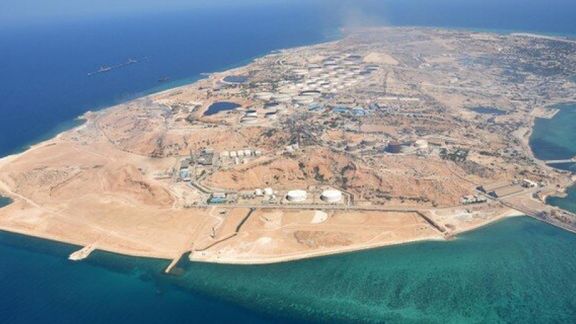
Chinese-language media are seemingly downplaying Beijing's recent supportive stance toward the UAE on three disputed islands in the Persian Gulf, drawing the ire of Tehran.
In a joint statement following a conference with Arab states in Beijing on Sunday, China outlined its position on the three disputed islands in the Persian Gulf—Greater Tunb, Lesser Tunb, and Abu Musa—suggesting that the issue should be negotiated with the UAE.
Beijing has not revised its stance, despite drawing anger from the Iranian foreign ministry on Sunday, which summoned the Chinese ambassador to protest China's "repeated support" for the UAE's "baseless claims".
State-controlled Chinese media, however, chose to highlight the robust relationship and economic ties between Beijing and Tehran, echoing the official government stance. Even slightly oppositional media outlets chose to emphasize China's strengths -- suggesting that Tehran ultimately needs Beijing.
Since the British withdrew from what is now the UAE in 1971, the three islands in the Persian Gulf have been disputed. That year, Iran's then-monarch, Mohammad Reza Shah, ordered the country's navy to occupy all three islands. Iranian forces continue to be stationed there, with only Abu Musa having a significant civilian population of several thousand.
The South China Morning Post (SCMP), a Hong Kong-based English-language newspaper, asserted on Tuesday that China's unanimity with Abu Dhabi for discussions over the disputed islands in the Persian Gulf "will not seriously harm its relationship with Iran" since “Iran cannot get away from China.”
“China has a lot of leverage over Iran as its biggest partner,” an analyst told SCMP.
On Monday, Mao Ning, spokeswoman for the Chinese foreign ministry, said that China has maintained a consistent position on the three islands issue, urging both sides to resolve their differences peacefully through dialogue and consultation.”
Yang Wei, a columnist for the Manhattan-based Epoch Times, a media company with outspoken criticism of the Chinese communist party, took a firmer stance in his article that the “CCP and Iran are using each other, and the Middle Eastern countries are fully aware of this. The CCP has no intention of solving the substantive problems in the Middle East, nor can it do so. On the contrary, it has been trying to disrupt the situation and provoke conflicts.”
According to Iranian analysts, the Islamic Republic’s foreign relations strategy is backfiring because it relies heavily on the East rather than the West.
As former Iranian diplomat Hossein Alizadeh pointed out, Iran’s close ties with China and Russia could leave the Islamic Republic vulnerable to potential pressure from these nations at a critical time.
“By limiting its foreign relations to just two countries, the Islamic Republic opens itself up to potential pressure at the most opportune time for these nations,” Alizadeh told Iran International.
Referring to the territorial friction between Taiwan and China, Alizadeh explained that Iran does not engage in a tit-for-tat strategy with China: “Iran could retaliate by recognizing Taiwan's sovereignty against China, but they won’t.” they instead “lie to the nation.”
China issued a similar joint statement in 2022 during a meeting with the leaders of the Gulf Cooperation Council (GCC).
The statement contained several clauses related directly to Iranian affairs, the Iranian nuclear program, and the UAE's claim to three Iranian islands in the Persian Gulf.
Once the joint statement was reported in the media, Iranians reacted strongly, accusing the Islamic Republic of being so weak that its ally China was subtly endorsing the UAE claim.
“At the time, Iranian Foreign Minister Hossein Amir-Abdollahian lied to people, saying they talked to their Chinese allies and they corrected themselves,” Alizadeh said.
Nevertheless, China is not the first Iranian ally to support its adversary.
In December last year, Iranian media similarly and strongly criticized Russia for endorsing the UAE's claims.
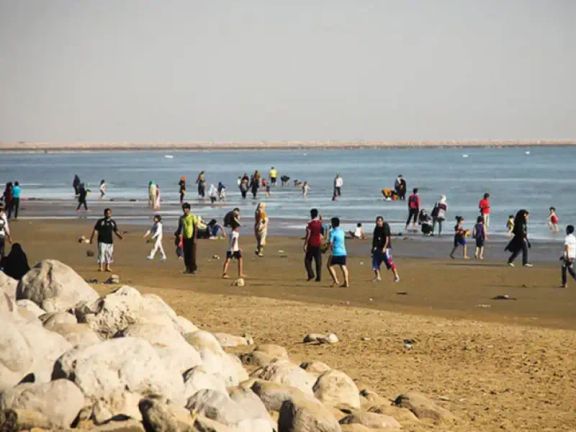
Iran is ramping up its hijab enforcement as summer approaches with the deployment of 7,000 police officers to the country’s northern beaches.
Deputy commander of the police force, Ghasem Rezaei announced that the forces are tasked with "controlling the beaches and recreation areas and maintaining order," particularly focusing on ensuring compliance with the nation’s mandatory hijab.
The police operation will place officers directly along the northern coastlines, with Rezaei warning that any “deviation” from the government-imposed norms will be met with legal consequences.
Every year, with the arrival of summer and the rising temperatures in Iran, the enforcement of hijab by the police intensifies.
Despite the government's strict enforcement of mandatory hijab, a movement of civil disobedience persists. Swathes of women are increasingly visible in public areas without a hijab, actively protesting against the restrictive mandates.
The commander-in-chief of the police force, Ahmadreza Radan, previously announced an electronic surveillance initiative for the northern beaches, signaling a broader crackdown to monitor and control beachgoers.
The intensified enforcement follows widespread protests in 2022 triggered by the death of Mahsa Amini while in the custody of police for not wearing her hijab properly.
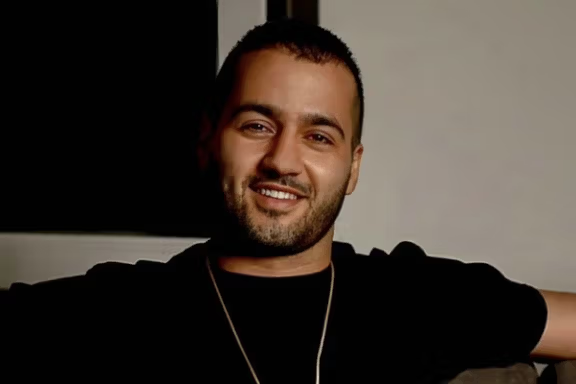
Twelve bipartisan members of Congress, led by Brad Sherman (D-CA), have written to US President Joe Biden urging him to "swiftly apply all available sanctions" to those involved in the death sentence of dissident Iranian rapper Toomaj Salehi.
The legislators asked Mohammad Reza Tavakoli and Morteza Barati, the judges in charge of both courts against Salehi, to be sanctioned in the US, noting that the UK and Canada had already sanctioned Barati.
“Toomaj Salehi's death sentence is the Islamic Republic's latest act of repression towards the Iranian people and cannot go unanswered,” the letter read.
Salehi was arrested for his support of the protests that erupted across Iran after 22-year-old Mahsa Amini died in the custody of the morality police in 2022. A UN Fact-Finding Mission has since said that the Iranian state is responsible for the physical violence that led to Amini’s death. The Islamic Republic killed over 500 protesters and arrested thousands during the demonstrations, dubbed as Woman, Life, Freedom.
The singer was sentenced to over six years in prison in July 2023 but was released on a technicality last November. He was quickly rearrested and given a death sentence by a revolutionary court in Isfahan, which sparked a global outcry and demonstrations in Europe and North America amid continued outrage over the use of capital punishment by the Iranian government in political cases.
“The Ayatollah's regime has a decades-long record of torturing and murdering Iranian dissidents, from a series of mass torture and executions of up to 30,000 Iranian political prisoners in 19883 to the murder of about 1,500 in the 2019 'Bloody November' crackdown to the murders of potentially thousands of protesters since September 2022,” the US lawmakers said in their letter.
Last week, a bipartisan group of US lawmakers introduced TOOMAJ Act. The bill aims to impose targeted sanctions on Iranian officials and judges who arrest, jail, and impose death sentences on dissidents.
Targeting Oppressive Officers to Mitigate Abuse in the Judiciary Act would impose sanctions “on the judges, prosecutors and investigators of the Islamic Republic’s Islamic Revolutionary Courts, which are involved in sham trials, torture, and inhumane treatment and sentencing of Iranian protesters and political dissidents.”
“Toomaj Salehi has used his platform to give a voice to the voiceless and bravely speak out against the Iran regime’s torture, abuse, and crackdown against the free will of the Iranian people," Rep. Young Kim (R-CA), one of the bill's lead sponsors, said in a statement to The Associated Press. “Unfortunately, he is just the latest victim of the regime’s cruelty.”
US lawmakers have introduced various bills since the beginning of the Woman Life Freedom in Iran. In April, the US Congress passed the MAHSA Act, which addressed human rights abuses in Iran. Under the Mahsa Amini Human Rights and Security Accountability Act sanctions will be imposed on Iran's supreme leader's office, its appointees, and anyone associated with it. To what extent, however, the Biden administration plans to implement the bill is unclear.
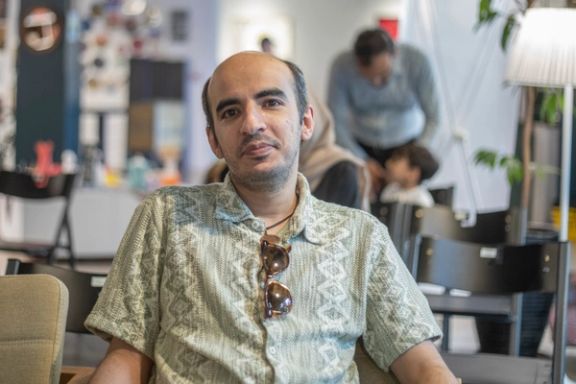
IRGC-linked media in Iran said on Wednesday that arrested blogger Hossein Shanbehzadeh is a "fugitive Mossad agent" with a history of insulting religious figures and connections to Israeli intelligence.
Iran's Judiciary reported the arrest of a "fugitive Mossad agent" in the city of Ardabil, northwestern Iran. The IRGC-affiliated Tasnim News says the detained individual is Shanbehzadeh, the popular social media activist and proofreader arrested on Tuesday.
Shanbehzadeh was arrested in Ardabil on Tuesday. The Ardabil prosecutor's office claimed the individual "had a history of insulting Shia imams and was in contact with high-ranking Mossad officers."
Refuting the accusations as "unjustifiable," his family stated that he has always used his real identity on social media, and that the charges have been levelled against him 24 hours after his arrest, without him having access to a lawyer.
Shanbehzadeh, who posted a dot in response to Supreme Leader Ali Khamenei's tweet last month, employing a sarcastic editorial tone, saw his comment receive considerably more likes than Khamenei's original tweet.
In response to his arrest, numerous users voiced their outrage, linking it to a comment he made under an official post by Ali Khamenei last month, which gained significant traction.
Chess grandmaster and Putin critic Garry Kasparov responded to news of Hossein Shanbehzadeh's arrest with a single dot on his X account.
A hashtag with his name in Persian has been tweeted over 57,000 times on X in the past few days.
One user wrote, "What information did Hossein have access to that he could spy on? Did he have missile or nuclear information? Why are you weaving nonsense..."
Human rights activist and former political prisoner Arash Sadeghi defined the crime of "espionage" under Islamic Republic law on X, writing: "The definition of the crime of espionage is that if a person provides classified information to people who are not authorized to access it, the act is espionage." He continued, "How can you accuse an editor, writer, and satirist whose only platform was his Twitter page of espionage?"
Conversely, some cited Shanbehzadeh's criticisms, including an exposé on Evin Prison's harsh practices, suggesting his arrest stems from governmental ire towards his outspokenness.
Shanbehzadeh was previously imprisoned in connection with the 2019 protests, facing charges of "insulting the sanctities and the leader of the Islamic Republic."
His arrest raises concerns about Iran's history of using espionage charges against critics, including the case of Maziar Ebrahimi, a businessman falsely accused of spying for Israel who was later exonerated.
Ebrahimi was tortured to 'confess' that he had been spying for Israel and was involved in the assassination of Iranian nuclear scientists in 2012. After releasing and allowing him to leave the country, Iran's government said that he was innocent.

The Iranian government has announced a new directive mandating Islamic dress codes for hospital patients and medical workers.
Majid Mohammadian, the head of the Hijab and Chastity Secretariat at the Ministry of Health, unveiled the directive on Thursday, requiring it be implemented in both public and private health institutions nationwide.
According to Mohammadian, "several new standard models of clothing have been designed, produced, including surgical gowns, underwear, trousers for colonoscopy, transvaginal ultrasound, breast ultrasound, mammography, special breastfeeding dresses, veils, and other garments."
He said that the new rules are intended to ensure patients' attire is in compliance with Islamic principles during medical procedures and diagnostic examinations.
The announcement comes amid escalating enforcement of hijab regulations under Project Nour, the clerical ruler's campaign to ensure adherence to hijab laws, which has led to increased physical confrontations and crackdowns on Iranian women.
The government's persistent push to enforce the mandatory hijab has reignited widespread condemnation both within Iran and internationally. Human rights organizations, student groups, and activists have vehemently opposed the measures, arguing that they represent infringements on basic freedoms and human rights.
As Iran waits for the official approval of the controversial hijab bill, titled "Protection of Family Through Promotion of Hijab and Chastity Culture", the government has already begun to enforce the new regime. The new regulations threaten women with arrest and impose harsh punishments such as travel bans for non-compliance with hijab mandates.